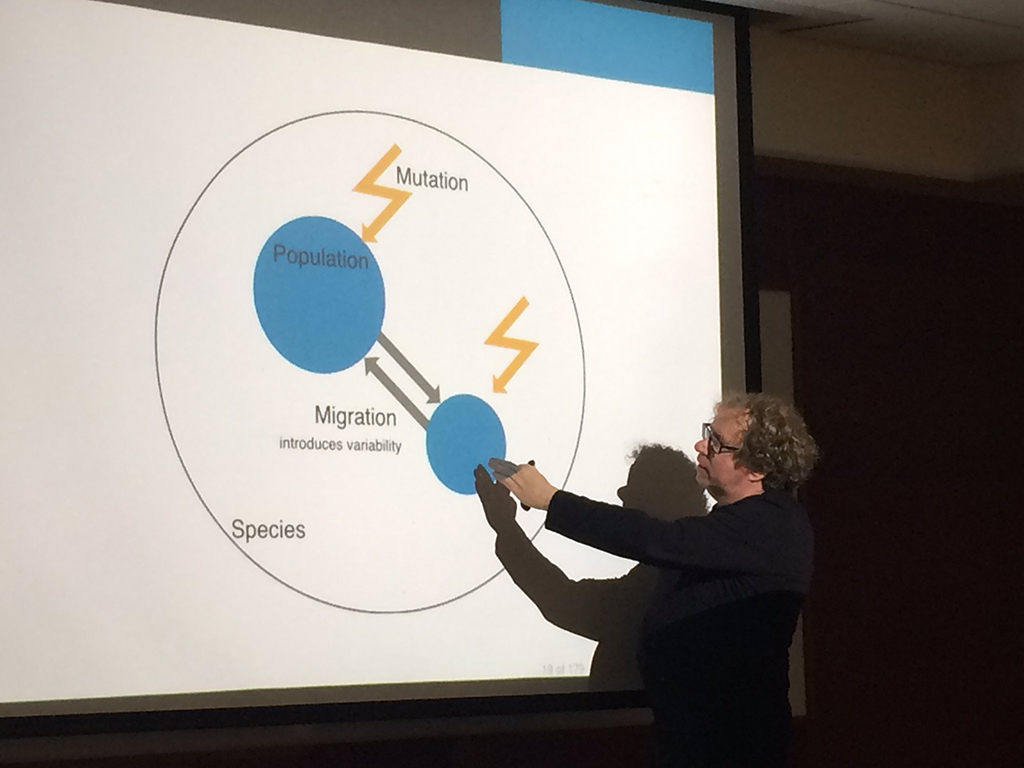Professor Peter Beerli gave lectures and hands-on tutorials to students who attended the program
A conference and workshop series designed to introduce graduate students and postdocs to the interface between epidemiology and population genetics was held October 3 – 7 at the Universidad Peruana Cayetano Heredia in Lima, Peru. This conference is the beginning of long term interactions between the university and the Global Health Institute in Antwerp, Belgium. One strategic goal the organizations hope to achieve is to establish a resident epidemiology program to improve public health in Peru, particularly the Amazon region where malaria and other diseases are widespread. Forty-one students attended the course.
Experts from different international research institutions were invited to present in person or through teleconference their own specific approaches to population genetics within the scope of the epidemiology of infectious diseases. Scientific Computing Professor Peter Beerli’s well-respected research and open source software were prominently featured at the conference.
Beerli gave a comprehensive and practical workshop series using his software, MIGRATE-N, which included a seminar on coalescence theory, a tutorial and discussion on improving estimates, instruction on Bayes factors/assessing gene flow models, and a tutorial in Bayes factors and model selection. Through these lectures and tutorials, Beerli delivered basic and advanced concepts in the formulation and Bayesian inference of migration models. “My workshops were designed to introduce epidemiology students to the importance of coalescence theory in population genetics research. I gave tutorials on population model selection and demonstrations of how to run MIGRATE to select population genetics models and evaluate model parameters,” said Beerli.
Among other things, epidemiology and population genetics models allow scientists to identify routes of transmission of infectious agents; model the risk, origin and spread of drug resistance; assess the efficacy of drug treatments; and evaluate the impact of prevention and control programs. For more on Beerli and his research, go to peterbeerli.com.


